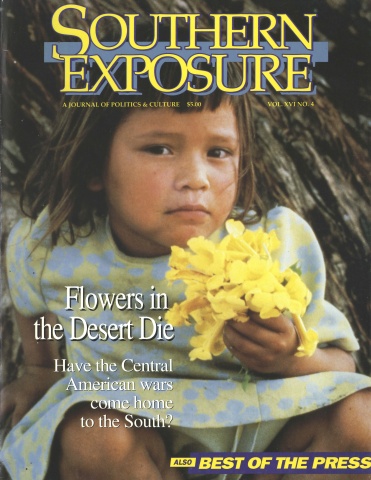The Best of the Press

This article originally appeared in Southern Exposure Vol. 16 No. 4, "Flowers in the Desert Die." Find more from that issue here.
Daily newspapers in the South seem to be winning more than their share of awards these days. This year, for example, half of the 14 Pulitzer Prizes in Journalism went to Southern newspapers. In the first eight years of this decade, newspapers in the region won a total of 26 Pulitzers — compared to only 12 in the 1970s.
In truth, the South has been producing top-rate journalists for decades. Some launched their own journals, but most with inquiring minds and a burning desire to write the unfettered truth were pushed out of the region, to less hostile territory. Up North they made names for themselves and won plenty of awards.
What’s new today is not the quality of writing in the South, but the permission given writers by their editors and publishers. Many newspapers in the region are now owned by corporate chains that strive for national standards of quality journalism, and they increasingly mirror the reporting of their national counterparts. As a result, Southern reporters are more likely to find their bosses ready to commit resources to expensive and timely investigations of subjects once considered off-limits.
When we first offered the Southern Journalism Awards last year, our goal was to encourage this trend. We sought to honor reporters whose stories broaden the range of issues, voices, and sources typically found in the mainstream media. By asking tough, often imaginative questions and probing untapped sources of information, these writers demonstrate the best potential of daily journalism to analyze a community’s problems and its capacity for positive change.
The response to the awards this year reflects the continuing changes underway in the ownership and content of the region’s newspapers. We received 120 entries in three divisions based on the size of a newspaper’s circulation. Awards were offered for investigative reporting that critically examined the practices of private and public decision-makers, and for campaign reporting that went beyond the horse-race approach to discuss pressing issues.
To ensure that the contest rewarded journalism that is accountable to progressive community values as well as professional standards, entries were reviewed by a panel of 21 judges supervised by Harry Amana of the University of North Carolina School of Journalism. The panel included professors of political science, English, and journalism; magazine and newspaper editors; journalists and book authors; and community leaders and public officials from across the 13-state region.
We are deeply grateful to all 21 judges, who donated an enormous amount of their time to this project. The final panel consisted of Harry Amana, Don Baker, Les Dunbar, Paul Luebke, Joan Oleck, and Elizabeth Tornquist. Other judges included Bill Adler, Richard Boyd, Kip Branch, Margaret Brown, Robert V.N. Brown, Christina Davis-McCoy, Mark Lee, Marc Miller, Sylvia Miller, R.W. Reising, Hazel Rich, Mary Ann Ross, Rob Sikorski, Lena Steward, and Kristin Layng Szakos.
In this special section we present excerpts from the first-place winners in each category and division, along with lists of the other winners and finalists.
—The Editors